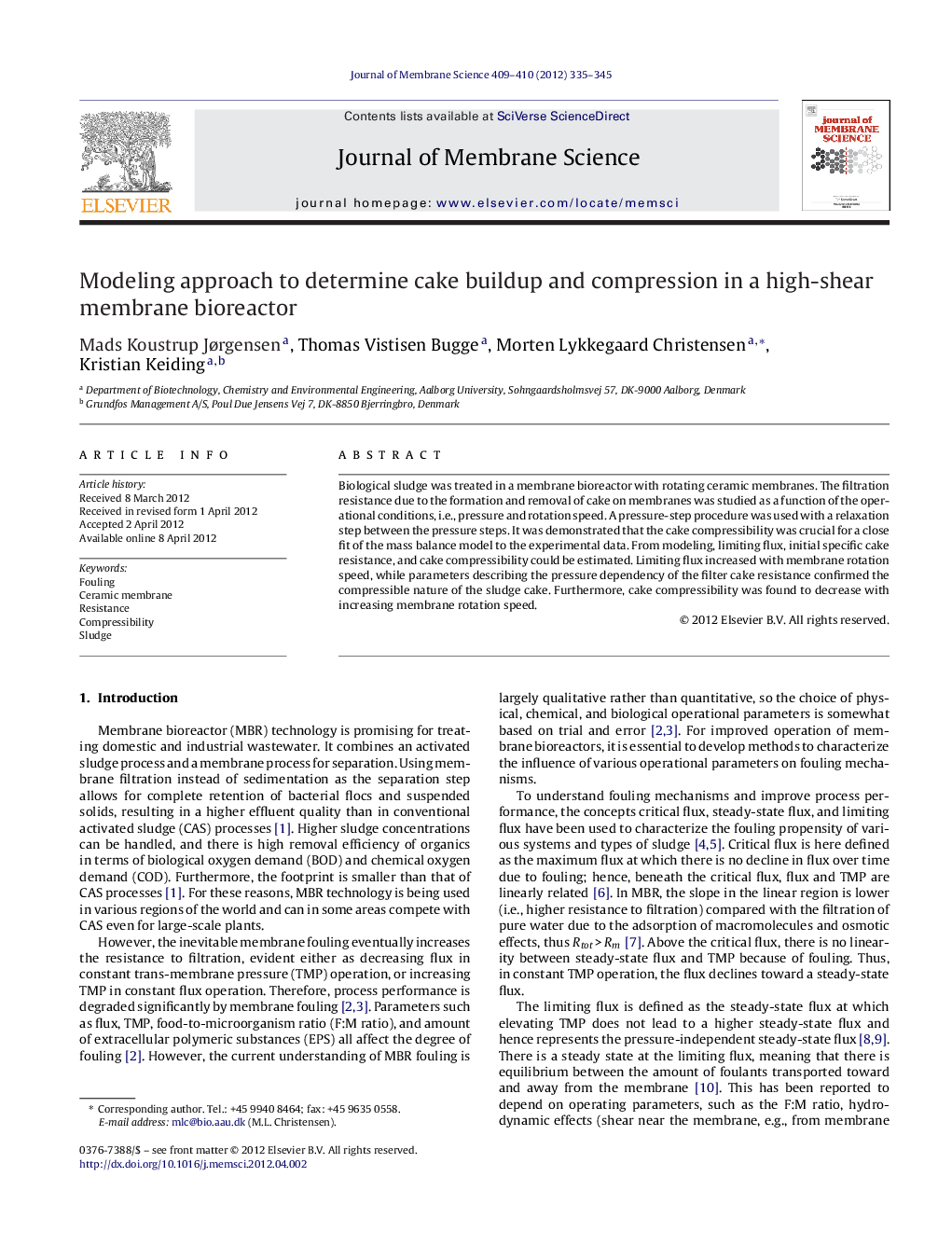| Article ID | Journal | Published Year | Pages | File Type |
|---|---|---|---|---|
| 634951 | Journal of Membrane Science | 2012 | 11 Pages |
Biological sludge was treated in a membrane bioreactor with rotating ceramic membranes. The filtration resistance due to the formation and removal of cake on membranes was studied as a function of the operational conditions, i.e., pressure and rotation speed. A pressure-step procedure was used with a relaxation step between the pressure steps. It was demonstrated that the cake compressibility was crucial for a close fit of the mass balance model to the experimental data. From modeling, limiting flux, initial specific cake resistance, and cake compressibility could be estimated. Limiting flux increased with membrane rotation speed, while parameters describing the pressure dependency of the filter cake resistance confirmed the compressible nature of the sludge cake. Furthermore, cake compressibility was found to decrease with increasing membrane rotation speed.
► Fouling in a membrane bioreactor was studied using TMP-stepping. ► A model to describe fouling from cake build-up and compression is proposed. ► The influence of rotation speed of membrane discs on back transport was found. ► Higher rotation speed gives a higher back transport and less compressible cake.
